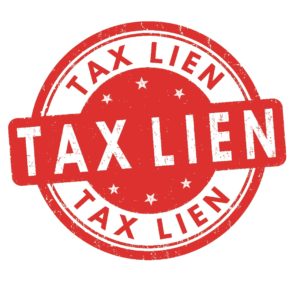 Historically, the three major credit bureaus – Experian, Equifax, and Transunion – have included tax liens (federal and state) and judgments on its consumer credit reports. Tax liens and judgments are considered “public records,” which can be discovered by third parties from a number of sources, including county recorders, Secretary of State offices, court clerks, and/or taxing authorities. In July 2017, the credit reporting agencies changed their reporting system in an attempt to provide additional reliability, by requiring a “complete record” before tax liens and judgments are reported on a credit report. A complete record requires at least three out of four specific pieces of information: a name, an address, and either a birth date or Social Security Number. Since a birth date or Social Security Number is often not required on tax liens and judgments (and sometimes prohibited), this change resulted in the removal of approximately 96% of civil judgments and 50% of tax liens during 2017.
Historically, the three major credit bureaus – Experian, Equifax, and Transunion – have included tax liens (federal and state) and judgments on its consumer credit reports. Tax liens and judgments are considered “public records,” which can be discovered by third parties from a number of sources, including county recorders, Secretary of State offices, court clerks, and/or taxing authorities. In July 2017, the credit reporting agencies changed their reporting system in an attempt to provide additional reliability, by requiring a “complete record” before tax liens and judgments are reported on a credit report. A complete record requires at least three out of four specific pieces of information: a name, an address, and either a birth date or Social Security Number. Since a birth date or Social Security Number is often not required on tax liens and judgments (and sometimes prohibited), this change resulted in the removal of approximately 96% of civil judgments and 50% of tax liens during 2017.
Effective April 16, 2018, the three credit bureaus removed all tax liens from consumer credit reports. While these changes affect only a small amount of consumers – estimated at 6% – the removal of judgments and liens from credit reports will likely impact lending procedures for most financial institutions and other third parties who use credit reports and scores. The small number of consumers who had judgments and tax liens removed may see a small increase in their credit score of an estimated 4 to 20 points.
These changes come as a result of concerns for the accuracy of credit reports and the ability for consumers to correct errors on their reports. The three major credit bureaus entered into a settlement with over 30 state attorney generals called the National Consumer Assistance Plan, which required credit reporting companies to develop minimum standards for personally identifiable information and reporting frequency for civil public records, including bankruptcies, civil judgments, and tax liens. Beginning July 2017, all public records must meet the criteria discussed above to be included on a credit report, and the information must be refreshed every 90 days.
In February 2018, the Consumer Financial Protection Bureau (“CFPB”) published a study concluding that the effects on consumers from removing civil judgments and tax liens was “likely minimal.” Essentially, CFPB was suggesting that, because tax liens do not heavily impact consumers, and because consumers with tax liens and civil judgments already had low credit scores, removing tax liens and judgments from a consumer’s credit report would make little difference.
For those consumers who will have tax liens and judgments removed from their credit reports, this change is moderately beneficial and may provide an opportunity to rebuild credit. However, for lenders and credit card companies, the reporting change makes it harder to determine creditworthiness. The CFPB reported that the change affects subprime consumers more than prime consumers. The CFPB further reported that consumers with judgments or liens tended to have more delinquencies than other consumers. Lenders may now take additional steps to verify whether a particular consumer has a tax lien or judgment by searching other public records in order to better assess their risk. For example, many court systems have searchable computer databases and many will even provide a copy of a judgment for a small fee. County clerks or recorders may also have searchable systems listing public records such as civil judgments and tax liens. The Illinois Department of Revenue also recently developed its own state tax lien filing system, which is available free online.
While liens and judgment information are still available from other sources, the change may mean more steps and higher cost for lenders, who may pass additional costs onto consumers applying for credit. The decision by the major reporting agencies may also affect small businesses, such as landlords who routinely search credit reports of their prospective tenants to determine payment reliability. On a positive note, the reporting changes could create opportunities for new companies to provide consolidated search services for lenders to supplement the consumer credit reports. However, the reporting changes may harm consumers not affected by tax liens or judgments, as lenders may require higher interest rates and fees as a result of the loss of information previously provided in credit reports.
Sandra Mertens
[email protected]

